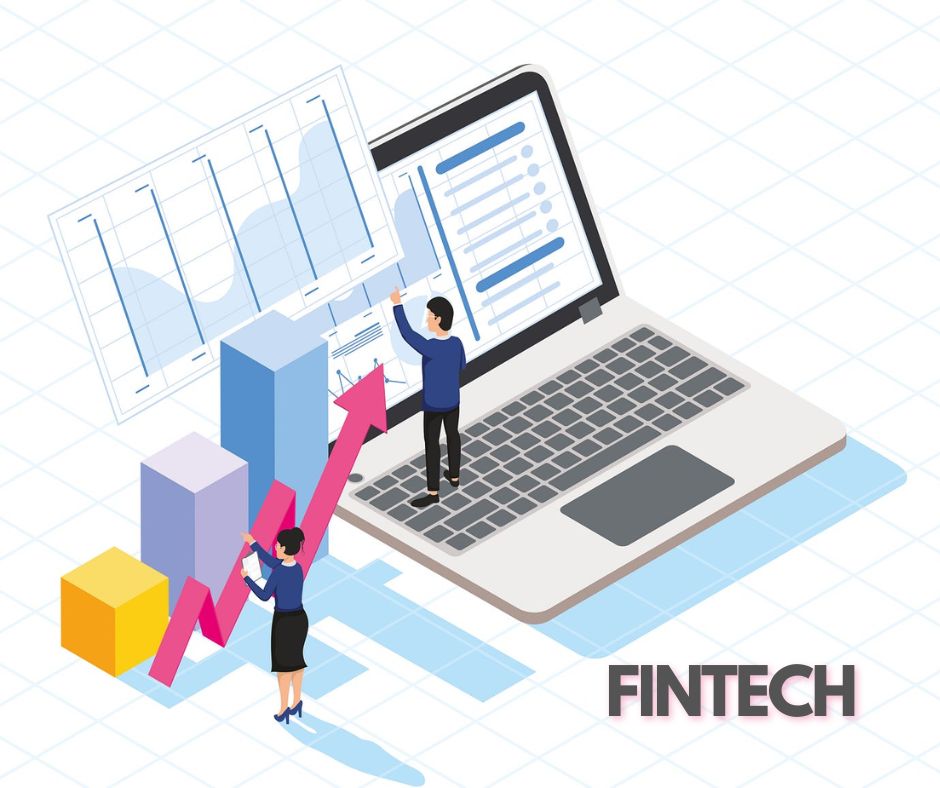In the digital era, the accounting industry is one of many that is transforming because of financial technology, or Fintech. Fintech technologies are becoming one of the important parts of traditional accounting practices as companies want to manage their finances with efficiency, accuracy, and openness. The significant influence of Fintech on accounting is explored in this blog, along with the prospects for this evolving industry.
Understanding Fintech
“Fintech” is the term which is used to define how financial services firms use technology in their offerings to serve better and use them for customers. It includes a wide array of apps, including blockchain and artificial intelligence (AI) as well as mobile banking and investment apps. Fintech aims to democratize and simplify financial services while increasing their use, efficiency, and accessibility.
The Evolution of Accounting
Traditionally, accounting has always required a lot of work, including meticulous record-keeping, complex computations, and thorough financial reporting. Manual processes, which took a lot of time and were prone to human errors, were frequently used by accountants. With the development of computer technology, software solutions were developed, however, the functionality of these early tools was limited.
The Role of Fintech in Modern Accounting

Accounting is being revolutionized by FinTech in various ways, i.e. from automation to improved data analytics. Furthermore, here are some of the important sectors where fintech is making a significant impact:
1. Automation of Routine Tasks
The automation of repetitive procedures is one of the most significant ways that Fintech has improved accounting. Repetitive tasks like data input, invoice processing, and transaction categorization may be managed by tools driven by AI and machine learning (ML). This lowers the chance of errors in addition to saving time. Now, accountants may concentrate on more strategic tasks like advisory services and financial analysis.
2. Real-Time Financial Reporting
Financial reporting is frequently delayed by traditional accounting method because of the time that is essential to gather and process data. Real-time financial reporting is made accessible by fintech solutions, giving various companies the most latest information about their financial condition. This is helpful for decision-making as it lets the businesses respond quickly in response to opportunities and financial challenges.
3. Enhanced Data Analytics
Accountants can swiftly and precisely analyze large amounts of financial data thanks to the advanced data analytics features included in fintech technologies. Trends, abnormalities, and predictive insights may all be identified with these tools. Businesses can remain competitive in a market that is changing rapidly with the use of enhanced data analytics, which facilitates improved strategic planning and decision-making.
4. Blockchain and Distributed Ledger Technology
The ability to safely and transparently record transactions is what makes blockchain technology so promising as a revolutionary tool in the world of accounting. The term “blockchain” refers to a decentralized ledger that is spread across several computers and records transactions in a way that prevents them from being altered later. Enhancing compliance and reducing the risk of fraud, ensures the integrity and accuracy of financial records.
5. Improved Compliance and Regulatory Adherence
Businesses that want to stay compliant with regulations might benefit from fintech solutions. Financial practices may be made sure to comply with applicable rules and regulations by using automated compliance systems. It can also be used to monitor transactions and identify questionable activity. Therefore, because of this, there is a lower risk of non-compliance and related penalties.
The Future of Accounting in the Age of Fintech

Though we are still in the early stages, there are even more exciting and promising advancements ahead for the integration of Fintech into accounting. Here are the following trends that you can look into:
1. Increased Adoption of AI and Machine Learning
Completing complex accounting tasks will continue to remain a significant function of AI and ML. Financial forecasting and audit procedures are the two complex financial processes that these technologies will get increasingly skilled at managing as they evolve. In addition to lessening the workload for human accountants, this will improve financial operations’ accuracy.
2. Expansion of Blockchain Applications
Blockchain has not yet realized its full potential, even though it is already making a huge impact on accounting. Smart contracts that automatically execute and record transactions might be used in future applications to significantly streamline financial processes. Real-time audits might be made possible due to blockchain technology, offering financial reporting a degree of transparency and trust that is never seen before.
3. Integration with Other Fintech Services
The integration of accounting systems with several other Fintech services, such as online banking, payment processing, as well as investment management, is expected to increase. Through this integration, a seamless financial environment will be created, allowing firms to manage their finances more comprehensively.
4. Personalized Financial Insights
Fintech will make it possible for the accountants to give their clients more individualized financial information. A client’s specific financial condition can be taken into consideration when offering customized advice by accountants using AI and data analytics. Furthermore, accountants will be seen as trusted consultants and all credit goes to this personalized approach, which will also improve the relationships of the client.
5. Greater Emphasis on Cybersecurity
The growing digitalization of accounting processes will make cybersecurity a critical concern. So, to protect confidential financial information from online attacks, future Fintech solutions will be essential to have strong security features. The use of multi-factor authentication, advanced encryption, and ongoing surveillance for questionable behaviors are important for this.
Conclusion
Without a doubt, fintech is changing accounting in the future and also bringing about unprecedented changes to the way financial operations are managed. Fintech technologies are improving the accuracy, efficiency, and transparency of accounting operations in several ways i.e. from automation and real-time reporting to blockchain and advanced data analytics. Accounting professionals are required to embrace lifelong and continuous learning, develop a tech-savvy attitude, and concentrate on strategic advising roles as these technologies continue to advance. By doing this, they will be able to fully utilize Fintech and prosper in the fast-paced world of modern accounting.
The financial industry is expected to advance and new opportunities will drive due to the synergy between accounting and Fintech in the upcoming years. Accounting professionals who adopt Fintech will be essential in determining the direction of finance in the future, and businesses that take advantage of these developments will find themselves at a competitive benefit.





